Abrasion-resistant pipes are designed to resist wear and tear from abrasive materials. They are also known as wear-resistant pipes.
As a result, it is developing rapidly in different applications.
We are an abrasion-resistant pipe manufacturer in China. with an appropriate price, honest service, and wide specification standard. If you have any need, please contact us and we will reply to you as soon as possible
Ceramic lined pipe is a type of pipe that is lined with ceramic to protect the inner surface of the pipe against wear and corrosion.
Ceramic (Corundum: a-Al2O3) lined abrasion resistant straight pipe and fittings are lined with highly abrasion resistant ceramic by SHS -------Self-propagating High-temperature Synthetic process.
Cast basalt have an excellent performance of high abrasive and high corrosion resistance.
Cast basalt is a kind of silicate crystalline material after producing and processing, it made of natural rock (basalt, diabase and other basite) or some industrial waste as the main raw materials, by melting, casting, crystallization, annealing and other processes.
Ceramic tile lined pipe and Bend are cast with mold vanishing vacuum suction casting cladding process.
Ceramic tile lined pipe using ceramic-metal composite production technology principle, with Al2O3 as raw material.
Rare earth alloy wear-resistant pipe has the characteristics of fast velocity and high flow rate.
The material of the rare earth alloy wear-resistant pipe is ZG40CrMnMoNiSiRe, which is also the grade of rare earth alloy steel.
The ceramic sleeves lined pipe as a whole part, and then assemble it into the steel pipe with our high-strength-temperature-resistant epoxy adhesive.
95% alumina ceramic sleeve lined pipes, elbows and T pipes have been largely applied in lithium battery material conveying system in recently years.
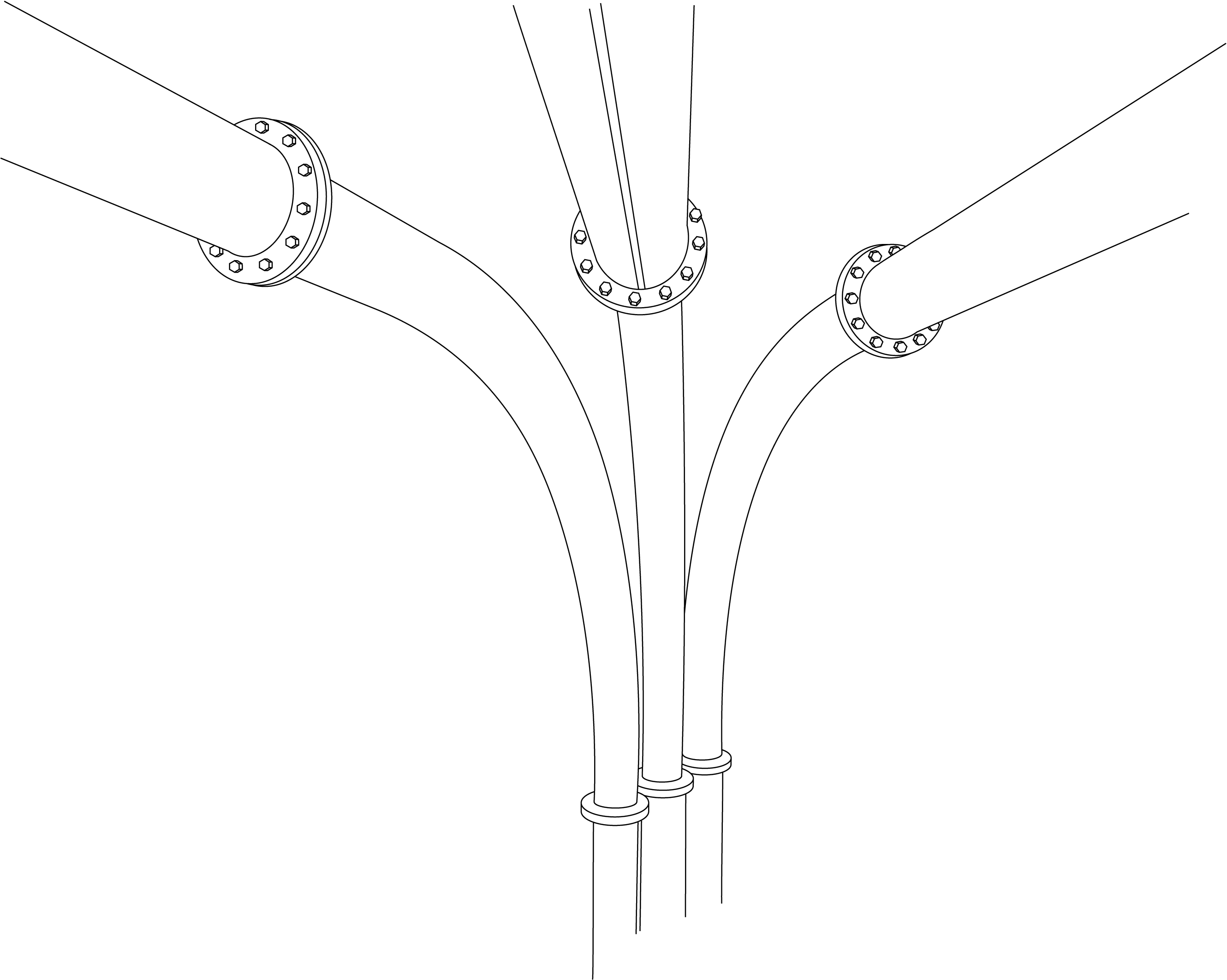
Abrasion is a common phenomenon for conveying pipe. Abrasion occurs on the surface where two objects are in contact with each other and have relative motion.
Similarly, pipeline abrasion refers to the phenomenon caused by the detachment or transfer of material surface when pipeline material is impacted by flowing water or small loose particles. They can be used in areas where abrasive materials such as glass, coke, coal, wood chips, fly ash, sand, cement, rice, and stone can cause premature wear.
Abrasion-resistant pipes have several advantages, including:
Abrasion-resistant pipes can be welded, cut, milled, and drilled using standard workshop practices.
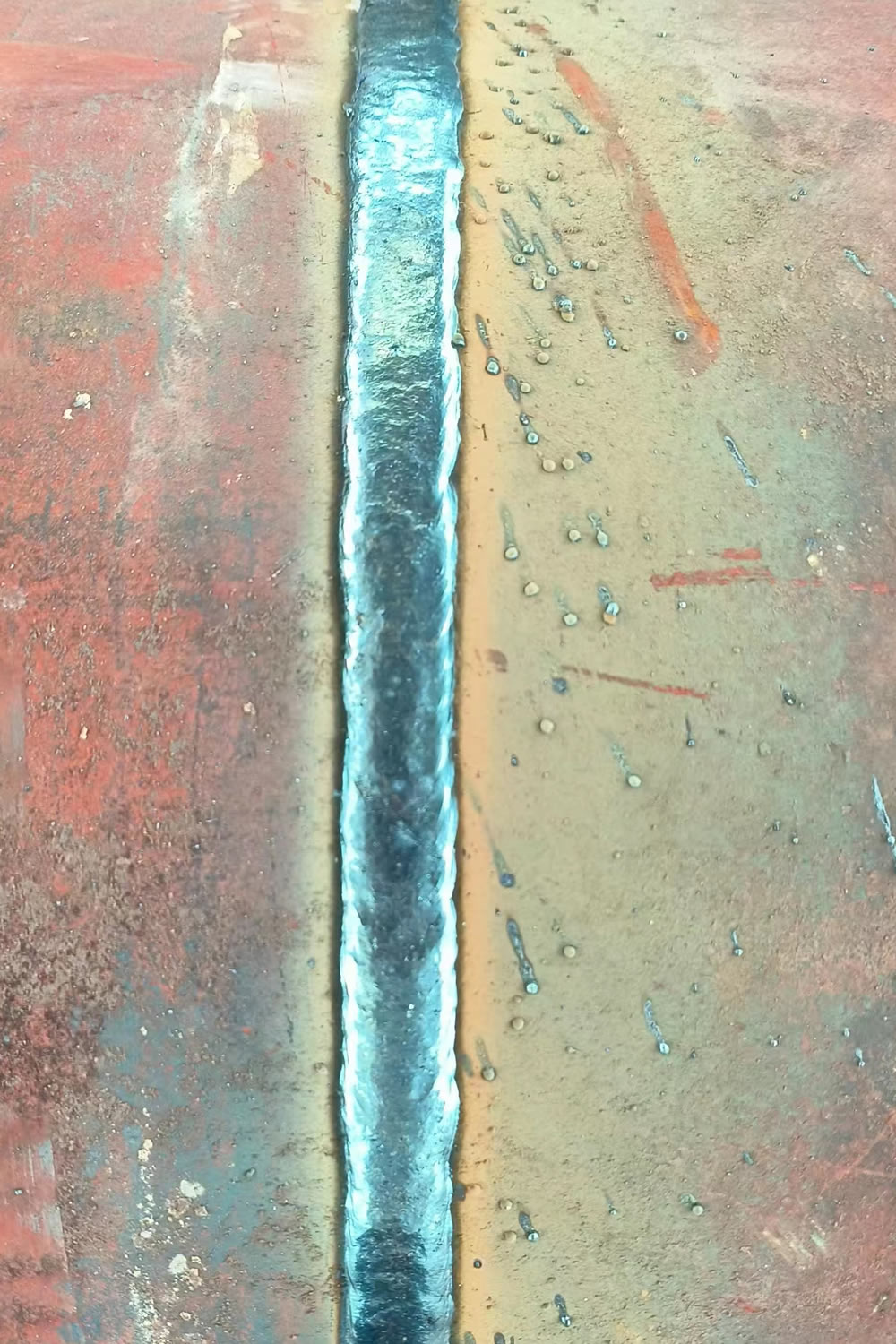
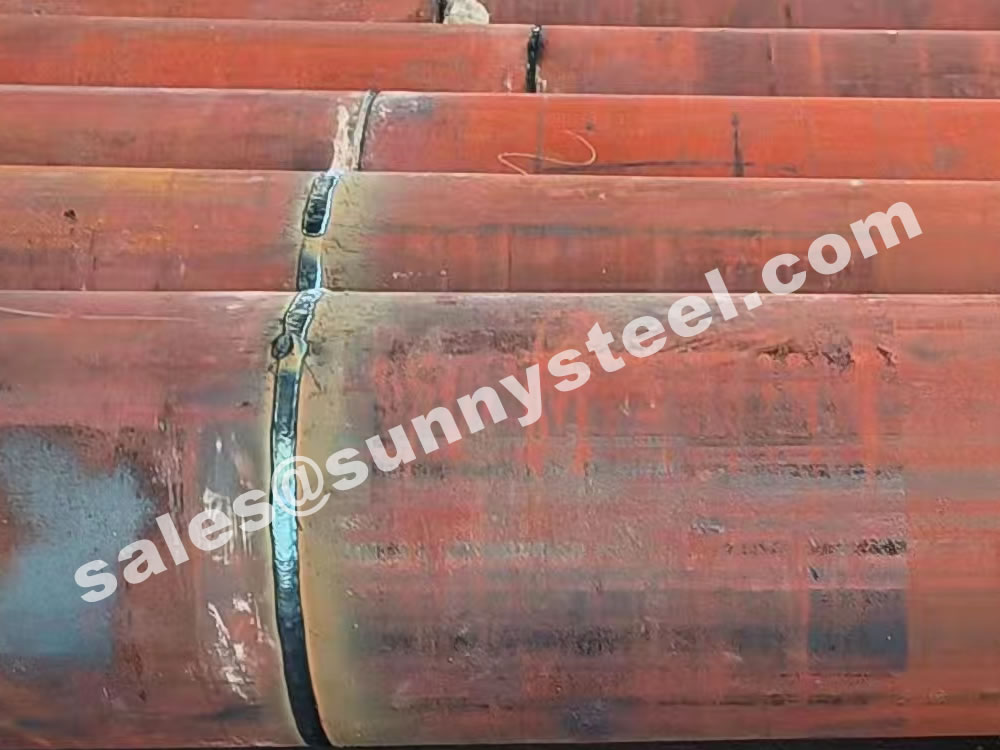

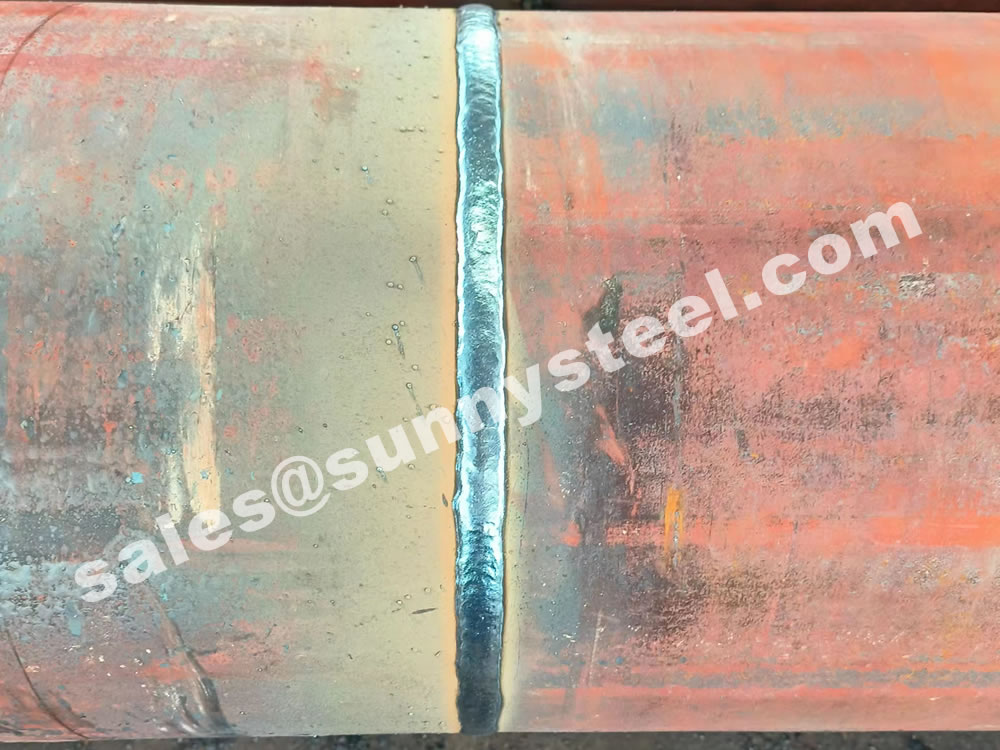

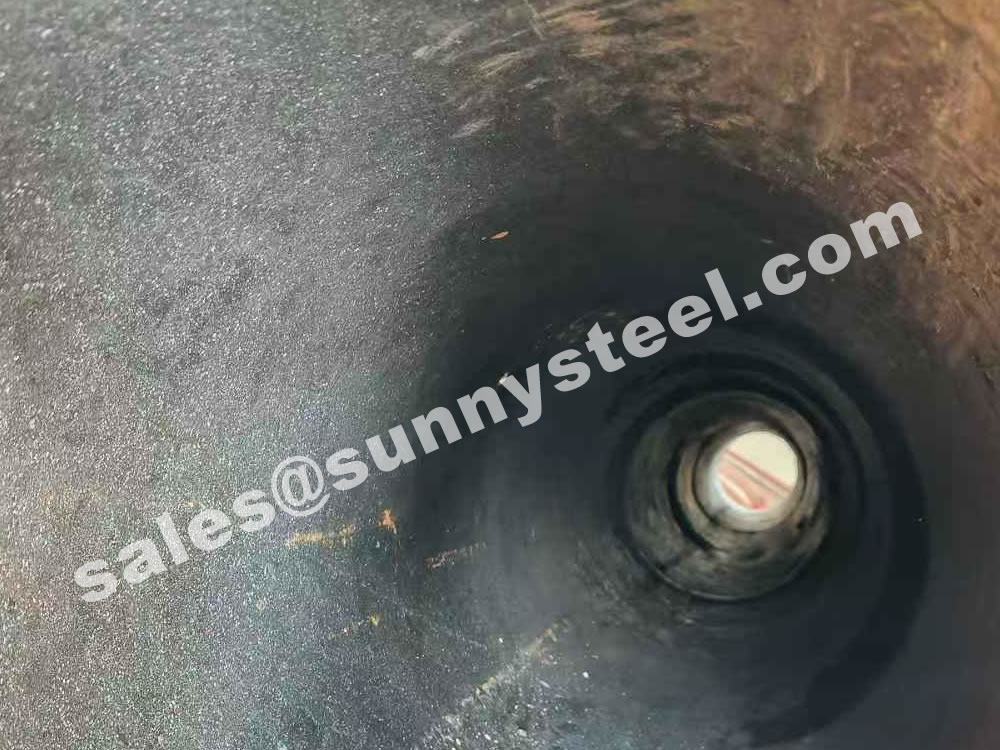

Self-propagating high temperature synthesis technology of corundum ceramic composite steel pipe is that is, "SHS" technology composite, is a national High-tech "863" project, is the original national metallurgical Industry Department, the Ministry of Electricity Project focused on the promotion of new products, the tube from within to outside by ceramic (corundum) layer, transition layer and steel layer composed of three parts.
Ceramic composite pipe due to corundum ceramic (a-AL2O3), Mohs hardness of 9.0 is equivalent to more than HRC90. Therefore, it has high wear resistance for abrasive media conveyed by industries such as metallurgy, electric power, mining, and coal. It has been confirmed by industrial operation that its wear life is ten times or even several ten times that of hardened steel.
SHS ceramic composite pipe is not like a convex spiral line on the inner surface of a seamless steel pipe because the inner surface is smooth and never corrodes. The inner surface roughness and clear water resistance characteristics of the relevant test units were tested. The smoothness of the inner surface was better than that of any metal pipe. The clear drag coefficient was 0.0193, which was slightly lower than the seamless pipe. Therefore, the tube has the characteristics of small running resistance and can reduce operating costs.
Since the steel ceramic layer is (a-AL2O3), it is a neutral characteristic. Therefore, it is resistant to acid and alkali and seawater corrosion, and it also has anti-scaling properties.
Due to the corundum ceramic (a-AL2O3), it is a single stable crystalline structure. Therefore, the composite pipe can operate normally in the long-term temperature range of -50--700°C. Material linear expansion coefficient of 6-8 × 10-6/0C, about 1/2 of the steel pipe. The material has good thermal stability.
Ceramic composite pipes are light weight and affordable. It is 50% lighter than the cast stone tube with the same inner diameter; it is 20-30% lighter than the wear-resistant alloy tube, and it has good wear resistance and corrosion resistance because of its long service life, thus supporting hanger costs, transportation costs, installation fees, and Reduce operating costs. Comparing the project budget of the design institute and construction unit with the actual project, the project cost is equivalent to the cast stone. Compared with the wear-resistant alloy pipe, the project cost is reduced by about 20%.
Because of its light weight and good welding performance. Therefore, welding, flanges, quick coupling, etc. can be adopted, and the construction and installation are convenient, and the installation cost can be reduced.
Ceramic steel pipe and traditional steel pipe, wear-resistant alloy cast steel pipe, cast stone pipe, as well as steel plastic, steel rubber pipe, etc. have essential differences. The outer layer of ceramic steel pipe is steel, and the inner is corundum. The Vickers hardness of corundum layer is as high as 100-1500 (Rockwell hardness is 90-98), which is equivalent to tungsten cobalt hard gold. The wear resistance is more than 20 times times higher than carbon steel pipe, it is superior to the corundum grinding wheel which is usually bonded. Now the corundum grinding wheel is still the main grinding wheel of the grinding mill. The corundum layer in the ceramic steel tube can wear away the corundum grinding wheel. The abrasion resistance of ceramic steel tube is mainly by the inner layer of several millimeters thick corundum layer, its Morse hardness is 9, second only to diamond and SIC, in all oxides, its hardness is the highest.
The inner liner ceramic wear-resisting steel pipe is made by SHS high temperature synthesis-centrifugal method, the melting point of corundum in ceramic steel pipe is 2045 ℃, the corundum layer and steel layer have special structure and stress field because of the process reason. Under normal temperature, the compressive stress of the ceramic layer, the tensile stress of the steel layer, the two opposites, into a balanced whole. Only when the temperature rises to more than 400 ℃, because the thermal expansion coefficient is different, the new stress field produced by the thermal expansion and the original stress field in the ceramic steel pipe cancel each other, so that both the ceramic layer and the steel layer are in a free equilibrium state. When the temperature rises to 900 ℃ the inner liner ceramic wear-resistant steel pipe into the water, repeatedly soaked repeatedly, the composite layer does not crack or cracking, showing the incomparable thermal shock resistance of ordinary ceramics. This performance is of great use in construction, because the outer layer is steel, in addition to heating the inner layer does not crack, in the construction, the flange, blowing, explosion-proof doors can be welded, but also can be directly welded to connect, which is more than wear-resistant cast stone pipe, wear-resistant cast steel pipe, Rare-earth wear-resistant steel pipe, bimetal composite pipe, steel pipe, Steel rubber pipe In the construction is not easy to weld or welding more than a chip. Internal liner ceramic Wear-resistant steel pipe resistance to mechanical impact is good, in transport, installation beat and the two support between the weight bending deformation, the composite layer does not break off.
At present, the practice of dozens of thermal power plants shows that the wear resistance of the inner-lined ceramic steel tube is high, and the resistance to fluid scouring is strong. In the first air duct, the bending pipe wear the most quickly, the wear resistance of the inner liner ceramic wear-resisting steel pipe is more than 5 times times higher than that of the thick wall wear-resisting cast steel elbow.
In practice, the inner liner ceramic wear-resistant steel pipe after 1-2 years to open observation and measurement, the composite layer has no obvious wear or fall off, in the same size and unit length of the pipeline, the internal liner ceramic wear-resistant steel tube weight only wear-resistant cast steel pipe or bimetal composite pipe of about 1/2, the cost of each of the meters reduced 30–40%, Only cast stone pipe and Rare-earth wear-resistant steel pipe weight of about 2/5, per meter project cost reduction of more than 20%. In the corrosive or high-temperature place to use the liner ceramic wear-resistant steel pipe, its price is only a stainless steel tube, nickel-titanium tube of a fraction of.
Fluid pipeline transportation is not only used in the power industry, but also in metallurgy, coal, petroleum, chemical, building materials, machinery and other industries. When the pipe is transported with large grinding material (such as ash residue, pulverized coal, mineral fine powder, tailings cement, etc., there is a problem of fast abrasion of pipe, especially the bending pipe wear fast; when conveying a strong corrosive gas, liquid or solid in the pipeline, there is a problem that the pipeline is corroded and destroyed quickly. When conveying the material with high temperature in the pipeline, there are some problems such as the price of heat-resisting steel pipe is very expensive. The internal liner ceramic wear-resistant steel pipe market, these problems are solved.
A ceramic lined pipe is a type of pipeline that has an inner lining made of ceramic material to provide superior resistance to wear, abrasion, and corrosion. The ceramic lining is typically made of high-grade alumina ceramics, which are known for their hardness, strength, and durability.
Ceramic lined pipes are commonly used in industrial applications where the pipeline is exposed to harsh conditions, such as in mining, power generation, oil and gas, and chemical processing. The ceramic lining provides exceptional wear resistance, protecting the underlying steel or cast iron pipe from premature failure due to abrasion or corrosion.
In addition to their excellent wear properties, ceramic lined pipes may also provide benefits such as improved flow rates, reduced downtime, and lower maintenance costs. They may also be used in applications where hygiene is important, as the ceramic lining is non-toxic and does not react with most chemicals.
Ceramic lined pipes may be manufactured in various sizes and shapes, including elbows, tees, and reducers, to meet the specific requirements of each application. The ceramic lining may be adhered to the inner surface of the pipe using specialized adhesives, and may be installed using conventional welding or mechanical joining techniques.
While ceramic lined pipes can offer significant benefits in terms of wear resistance and longevity, they are typically more expensive than traditional steel pipes due to the cost of the ceramic lining and specialized manufacturing processes.

A half pipe sleeve is a piping device, which is placed on a pipe to protect it against the aliments.
Read moreSnap rings are used in conjunction with boiler tubes erosion shields, which is a clip that easily installs boiler tubes erosion shields to the tube.
Read more
Hydraulic and pneumatic pipelines and flexible hoses often have to withstand extremely harsh conditions.
Conveying abrasive materials such as ash, sand or sinter dust puts pipes under severe stress. Even thick-walled steel or cast iron pipes often show significant signs of wear in a very short time. Wear is particularly severe in pipe bends, where the flow is highly turbulent.
To ensure a long service life and high pumping capacity, it is essential that the pipes, bends and hoses are lined with wear-resistant materials.
| Items | Index |
|---|---|
| Alumina content | 92% |
| Bulk Density | 3.62g/cm³ |
| Rockwell Hardness (HRA) | 90 |
| Compressive Strength | 850MPa |
| Fracture Toughness | 4.8MPa.M1/2 |
| Bending Strength | 290MPa |
| Thermal Conductivity 20℃ | 20W/m.k |
| Coefficient of Thermal Expansion | 7.2×10-6m/×m.k |
| Young's Modulus 20℃ | 277GPa |
| Shear Modulus 20℃ | 113GPa |
| Surface Finish: As Fired | 1.27mm |
Wear-resisting bend (wear resistant ceramic pipe)just as its name implies is a relatively traditional is more wear-resisting bend (wear resistant ceramic pipe), adopted the new wear-resistant plastic production, used in large industrial, currently occupies the market share of around 80%.
Ceramic lined is an application that provides protection for materials in environments that experience exposure to extreme chemicals and temperatures.
Ceramic lined refers to a material or surface that has a layer of ceramic applied to it. This ceramic layer provides protection against wear, corrosion, and abrasion, making it ideal for use in industrial applications where harsh conditions can cause damage to equipment over time. Ceramic lining is commonly used in pipes, tanks, and other equipment used in chemical processing, mining, and power generation industries.
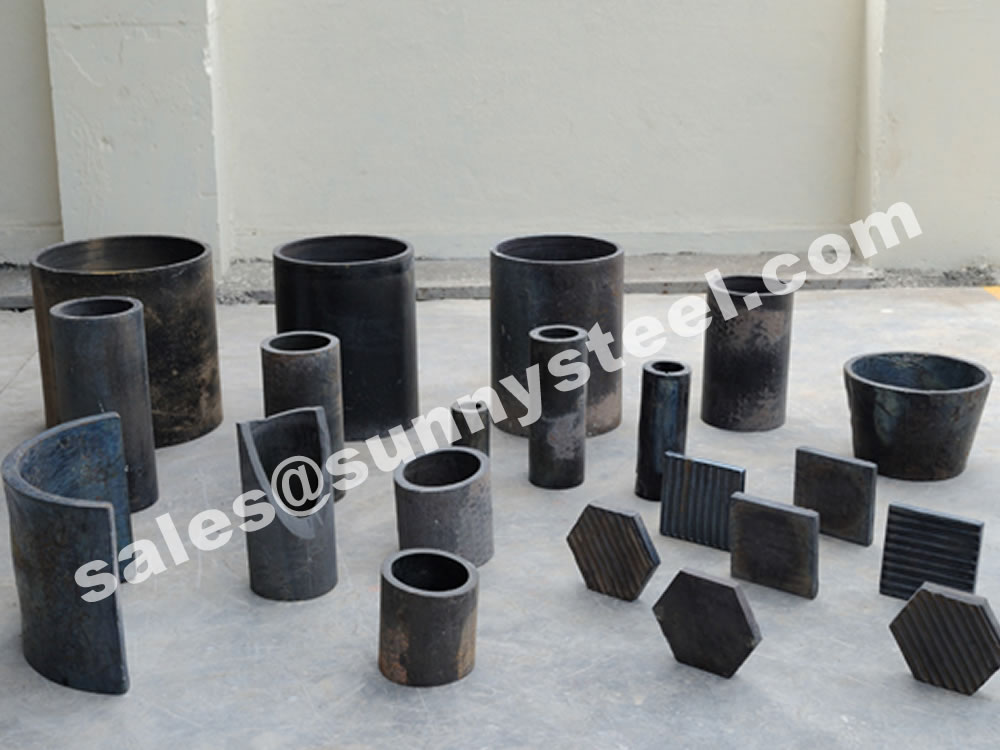
Cast basalt is a mineral of exceptionally high abrasion resistance, unlimted resistance to moisture, high compressive strength and resistance to virtually all acids and alkalis and is completely corrosion free.
Cast basalt is produced by melting selected natural basalt broken into sizes of 20-50 mm in shaft furnaces at tempreatures around 1,300C, following by casting at which the metled basalt forms uniforms pherolithic crystals hence producing its typical physical propertics, in particular its exceptional hardness and wear-resitance.
Cast basalt reaches a value of hardness of 8( min ) on the Moh's hardness scale. for comparision : the highest value10is only attained by dimonds. by virtue of these properties,the silicate cast basalt provides outstanding protection against abrasion and scrubbing.
however, it is marked by asertain sensitivity ti impacts.Under Normal services conditions, cast basalt withstands tempratures up to approx.+ 350C or-40C. However Cast basalt sholud not be subjected ti temprature shocks.
Sizes : Cast basalt produces are manufactured as tiles, from pieces and segments. straight pipes are spun-cast, available for nominal bores of 32 to 600 mm with the wall thickness ranging from 20 to 30mm and a standard lenght of 500mm.samller nominal bores of straight pipes, pipe segment for radill of 40 to 3,000mm of vatrious angles, as well as special formpiece linings are pre dominately sand-cast. The standard wall-thickness is 20mm. depending on the respective quantity, steel moulds can also be used, the wall thickness in those cases usually being 30 to 40mm.
Cast basalt lined pipe can be mainly used as abrasive material and ash handling system like chute slip trough, funnel, silos, a variety dust catcher, revolving-flow machine, various scraper transport planes, all the feeder liner. Laying the ground all types of chemical plants, it can be for lining picking tank or storage of corrosive substance of the storage room.
According to customer requirements along with cast basalt production technology and we can offer various specifications and various shape to meet client's need.
Friction Resistance : As more material is passed over Cast Basalt it gets polished up thereby reducing friction further. Cast Basalt improves in service after getting polished. Wetting also improves its performance in practical applications.
Impact Resistance : Direct Impact Resistance at 90 degree is low like all other ceramics, but it can be increased with proper installation by reducing the angle of impact. Cast Basalt is the best wherever sliding abrasion exists. Moreover, external impact strength of composite basalt pipe (enclosed in M.S. Shell) is always more than that of bare Ni-hard Pipe.
Chemical Resistance : Cast Basalt is almost absolutely acid/alkali resistant (except Hydrofluoric Acid) and hence corrosion resistant.
Weight and Sizes : Basalt Tiles are available in regular shape square of 200 x 200 x 30 mm thick, weighing approx. 90 kg/sq m; whereas bends and pipes are lined using Basalt Cylinders of various standard sizes from 50NB upto 500NB.
Temperature : Cast Basalt withstands temperature up to 4500 oC.
Design Aspects
Refining basalt to a finely crystallised glass ceramic, SunnySteel’s cast basalt wear resistant material provides an extremely durable, long-lasting lining for static plants bearing large volumes of abrasive and/or corrosive matter.
Supplied as both a pipe and tile lining solution, cast basalt is ideally suited for wet material handling applications with lower impacts, such as coal chutes, ash sluiceways, ash pipelines at power stations and hydraulic granulated slag or sand conveying. Basalt delivers high resistance to wear corrosion and temperatures up to approximately 400 °C.
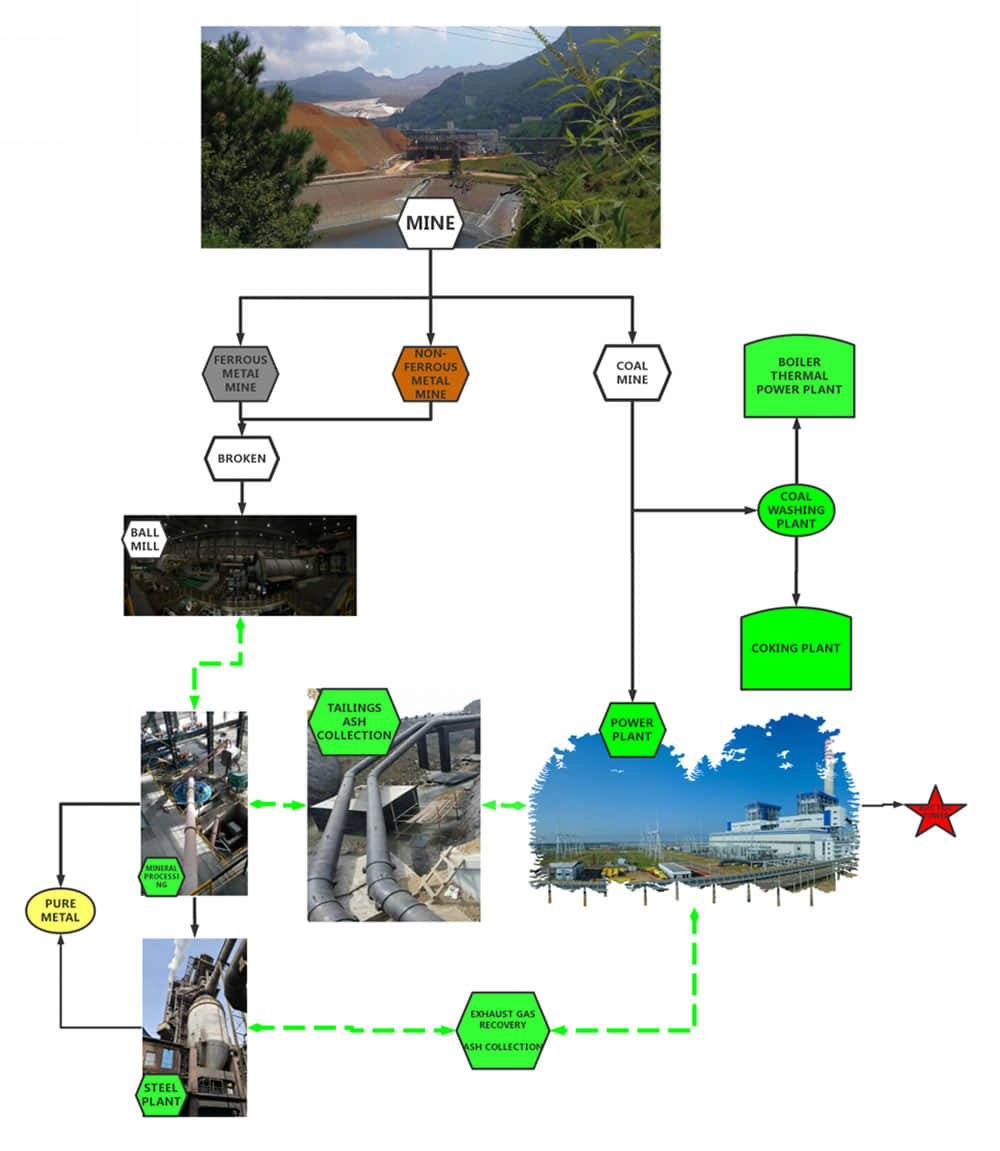
Cast basalt pipe is a kind of silicate crystalline material that has been produced and processed. It uses natural rock (basalt, diabase and other basic rocks) or some industrial waste slag as the main raw material. After melting, pouring, crystallization and annealing and other processes. Cast stone has excellent wear resistance and corrosion resistance. Cast stone products mainly include cast stone slabs, cast stone pipes, cast basalt lined pipes, jacketed cast stone pipes, cast stone wear-resistant expansion joints, cast stone wear-resistant valves, cast stone powder and various wear-resistant and resistant cast stone powders as raw materials. Putty slime, etc. Has been widely used in electric power, mining, coal, metallurgy, chemical, construction and other industrial sectors severely worn and corroded parts and equipment.
the cast basalt lined pipe is composed of the inner lined cast stone pipe, the outer steel pipe and the cement mortar filling layer between the two. It integrates the wear resistance and corrosion resistance of the cast stone pipe, the toughness of the steel pipe and the consolidation of the cement mortar. In one. It improves the adaptability of the Product to various complex working conditions. At the same time, the use of cement mortar as a filler can make the inner surface of the steel pipe in an alkaline medium, and the surface of the steel pipe will produce a purification film, which can prevent corrosion. It is resistant to wear, corrosion, and high pressure, and is safe and convenient to transport.
Cast basalt lined pipes are divided into straight pipes, curved pipes, tee (cross) pipes, reducing pipes, etc.
The diameter series of the cast stone composite elbow is the same as that of the cast stone composite straight tube, and its turning radius and center angle are made according to user requirements.
Non-standard specifications of cast basalt lined pipes can be made according to customer’s technical requirements. For large-diameter cast basalt lined pipes with a nominal diameter of more than 800mm, different cements are usually used to paste the cast stone plates on the inner wall of the well-processed steel pipes according to the operating conditions of the pipe fittings to form an integrated cast basalt lined pipe. Its advantages are good wear resistance, wide application range, small size limitation of pipe fittings, and low cost of pipe fittings.
Natural gas is used for melting basalt stone in melting furnace. Natural gas is currently very clean and environmentally friendly fuel. No any pollution. To the customer requirements choose environmental protection material that is a good choice.
The product processed from cast basalt is a new type of silicate crystalline material. Using natural rock (basic database, shale, etc.) or industrial waste as the main raw material components, smelting, casting, heat treatment and other processes are regularly arranged, crystalline, hard, and fine-textured metal industrial materials. Casting basalt has an excellent high abrasion and high resistance. Abrasiveness. Corrosion resistance.
Lorem ipsum dolor sit amet, consectetur adipiscing elit. Sed ultrices elit eget sem luctus interdum. Morbi a sapien ut dolor placerat consequat. Nulla facilisi. Vivamus at lacinia elit. Phasellus at faucibus lacus. Duis in enim pharetra, lobortis neque id, ultricies sapien. Sed finibus, arcu vitae suscipit vehicula, purus lectus vestibulum tortor, vel semper justo erat eu risus. Nulla ac odio ac turpis blandit porttitor vitae vitae metus. Fusce commodo lacinia leo quis dictum.
Friction Resistance – As more material is passed over Cast Basalt it gets polished up thereby reducing friction further. Cast Basalt improves in service after getting polished. Wetting also improves its performance in practical applications.
Impact Resistance – Direct Impact Resistance at 90 degree is low like all other ceramics, but it can be increased with proper installation by reducing the angle of impact. Cast Basalt is the best wherever sliding abrasion exists. Moreover, external impact strength of composite basalt pipe (enclosed in M.S. Shell) is always more than that of bare Ni-hard Pipe.


Chemical Resistance Cast Basalt is almost absolutely acid/alkali resistant (except Hydrofluoric Acid) and hence corrosion resistant.
Weight and Sizes - Basalt Tiles are available in regular shape square of 200 x 200 x 30 mm thick, weighing approx. 90 kg/sq m; whereas bends and pipes are lined using Basalt

When you partner with Sunny Steel, you can stop worrying about meeting deadlines thanks to our responsive and timely service. You'll also say goodbye to unnecessary shopping around. Instead, you'll get white glove service from an expert who understands your needs and can get you the materials you need quickly.
